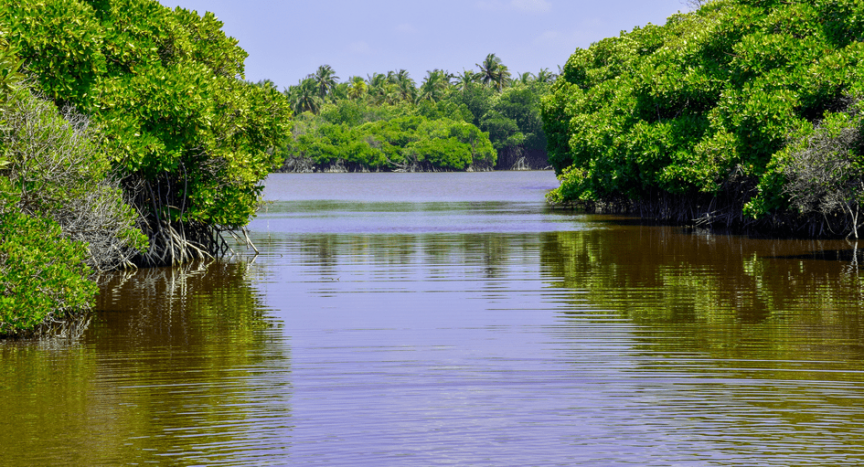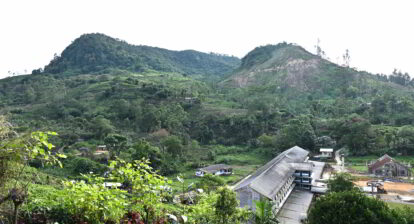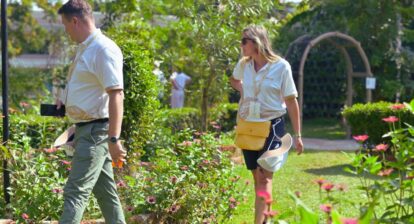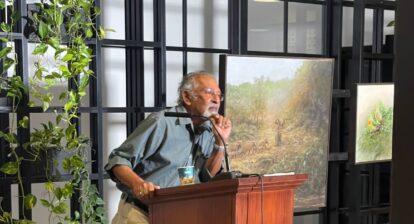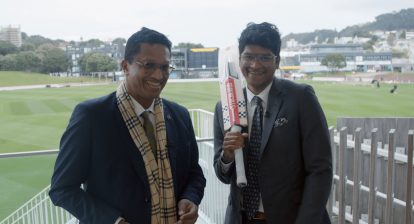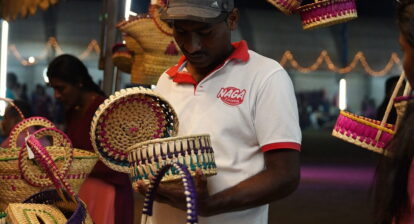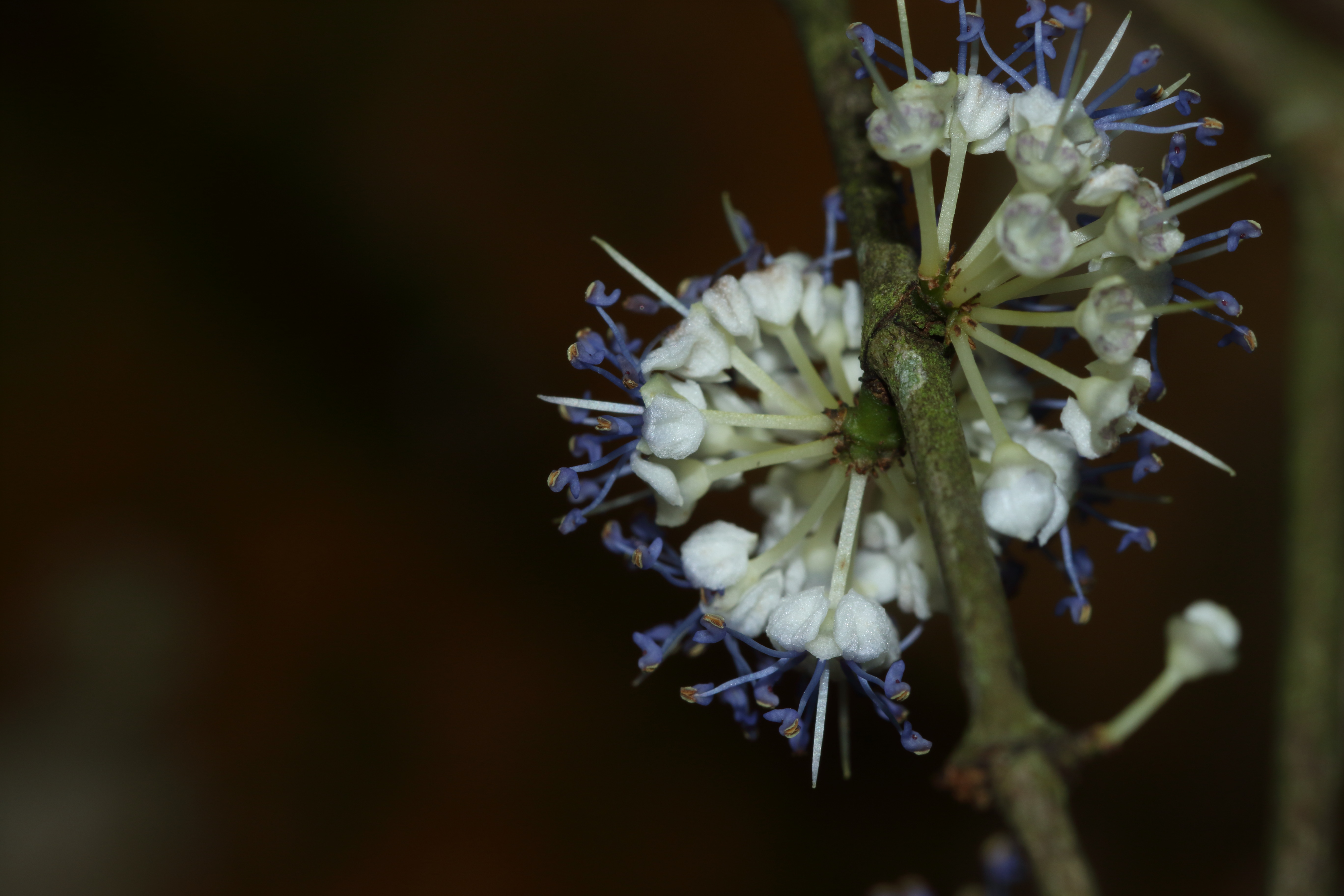What is Blue Carbon?
Global warming is the result of human activity such as the use of fossil fuels to unsustainable agriculture. This in turn increases Green House Gas Emissions warming the planet and causing dangerous effects from disrupted weather patterns to rising sea levels. Forests help absorb these emissions. But did you know that ecosystems such as mangroves and seaweed forests, are up to 4 X more effective at absorbing Green House Gasses? That’s why they are also known as blue carbon sources.
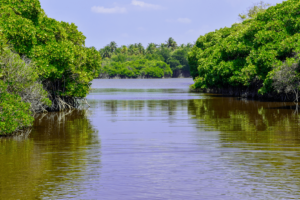
Mangroves fringing Kalpitiya lagoon
Investing in Blue carbon
Seeing the importance of blue carbon ecosystems, Dilmah is strengthening its investments in them through two projects: Defending Mangroves and Afforest Underwater.
The former is designed to restore degraded and destroyed mangrove forests while the other looks at sustainable seaweed harvesting. Interestingly both projects adopt a community participatory model. Dilmah realizes that for successful conservation efforts there must be collaboration and participation from different stakeholders and the neighbouring communities.
Restoring Mangroves
In restoration of mangroves, the work is concentrated in Kalpitiya under the supervision of mangrove expert Dr. Manjula Prasanna. A nursery of mangrove saplings has been nurtured and plantings are being organised at the project site at different intervals rallying different communities in the area.
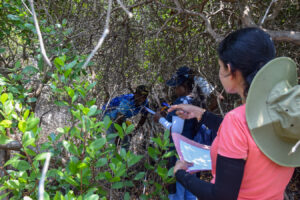
Baseline survey being conducted by the Marine Environmental Protection Authority of the mangrove project site.
Apart from the Afforesting Underwater project, Dilmah has also partnered with Biodiversity Sri Lanka, Department of Wildlife of Sri Lanka and several other businesses in the task of restoring up to 25 acres of degraded mangroves in Sri Lanka’s precious Anawilundawa Wetland Sanctuary.
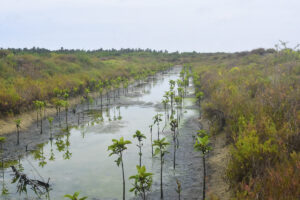
Mangrove saplings take root in degraded area in Anawilundawa Wetland Sanctuary
Seaweed Harvesting
Through Afforesting Underwater, Dilmah Tea is training fishermen in Mannnar, Northern Province of Sri Lanka in collaboration with the National Aquaculture Development Authority (NAQDA) to practice sustainable seaweed farming. This collaboration empowers fishermen to shift from fishing to climate-resilient seaweed farming, countering challenges like overfishing and fish migration due to warming waters. Currently at the pilot stage, the project is working with a small number of fishermen in a local community and intends to expands to other locations, based on the insights and experience gained during the lifetime of the pilot project.
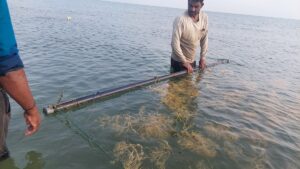
Fisherman turned seaweed grower in Mannar

